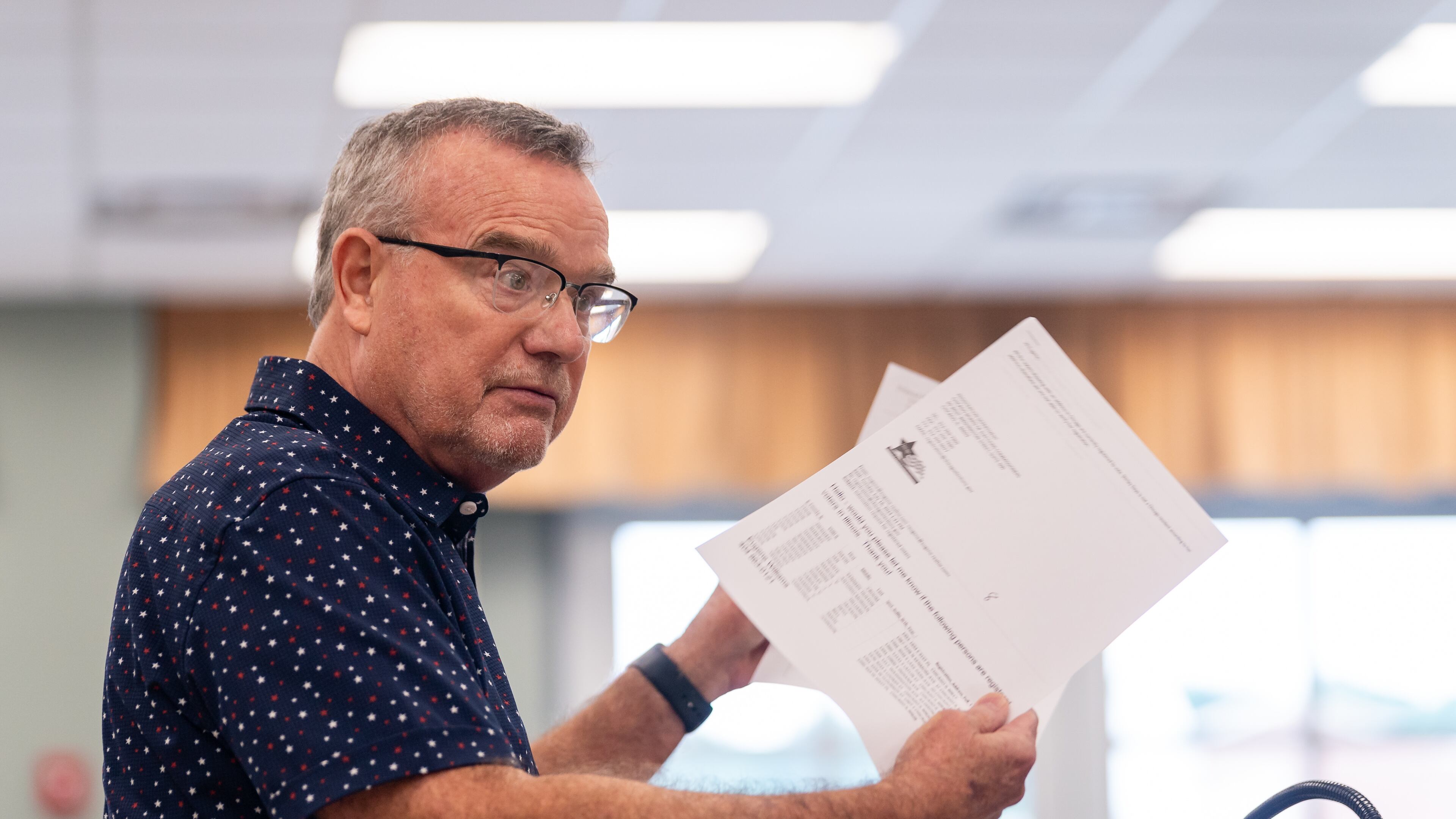Cobb County elections board rejects EagleAI-based voter challenges

The Cobb County Board of Elections and Registration has rejected a wave of voter eligibility challenges under Georgia’s new election laws, but more are expected ahead of this year’s general election.
In a meeting Saturday, the Cobb board dismissed an attempt to cancel the registrations of 2,472 voters challenged by Cobb County activist Eugene Williams using software from the private firm EagleAI to identify Georgia voters who may have moved.
Cobb’s decision came as conservative activists are expected to contest the eligibility of more voters ahead of the upcoming presidential election after Republican state lawmakers passed a new law — Senate Bill 189 — that gives private citizens more power to lodge such challenges.
The law, which took effect July 1, upholds challenges if there is evidence that a voter has died or moved, registers in a new jurisdiction, or registered at a nonresidential address. SB 189 is one of several laws the General Assembly passed after Donald Trump and his supporters questioned the legitimacy of the 2020 presidential election even though numerous investigations by state and federal officials and Trump’s own campaign found no evidence of enough fraud to affect the outcome.
Another election law passed in 2021 allows activists to challenge an unlimited number of voters who appear to have moved. Since the beginning of 2020, activists in the state have filed more than 350,000 challenges, the vast majority of which were dismissed by county election boards.
Left-leaning voting rights groups have said these new voter eligibility laws could unjustly strip the registrations of valid Georgia voters. In response to these mass challenge laws, two voting rights organizations filed a federal lawsuit last week to overturn the new law.

The challenges were assisted by EagleAI, a Republican-backed startup that has marketed its software to state and local governments as a way to clean voter rolls of potentially ineligible voters, but voting rights groups worry it will be used to cancel registrations of legitimate voters.
The Cobb election board cited errors in the EagleAI and other third-party sourced data Williams presented, voting 4-1 to dismiss all but four of the challenges, with Republican-appointed board member Debbie Fisher in opposition.
The four canceled registrations were removed before the hearing, and an additional 88 on Williams’ list were already scheduled to be removed by routine maintenance‚ election director Tate Fall said.
Throughout the meeting, Williams said his third-party data was credible, but Chairwoman Tori Silas said the board previously indicated it would not rely on unverifiable data in eligibility challenges.
“Is there a way to certify that that is, indeed, the true, accurate and correct data as pulled in from the secretary of state?” Silas said, referring to Williams’ data. “I believe that is the point.”
Fisher pushed back against the board’s majority, saying she needed more time to examine the challenges filed last month.
“The laws clearly state if you are registered and/or vote in another state, you lose your ability to vote in Georgia,” Fisher said.



